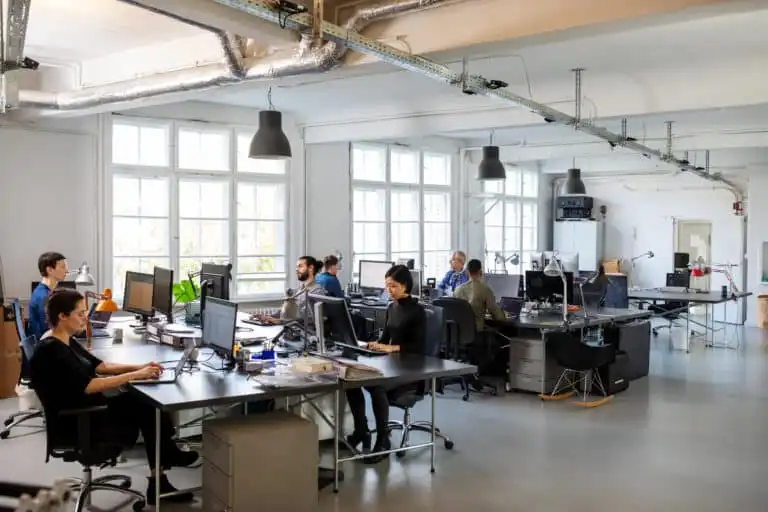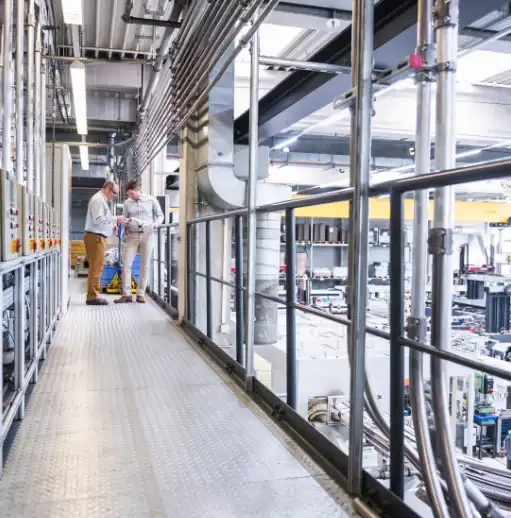
As more companies embrace remote and hybrid work options, coworking spaces help them fill a unique void. Coworking offers social opportunities, networking prospects, and general human interaction in place of the isolation of working strictly from home.
There’s a lot for employees to love about coworking. But why is coworking space important? What impact will it have as the workforce continues to evolve?
Coworking isn’t only about accommodating remote and hybrid workers. It’s vital to commercial real estate because it benefits both companies and their employees equally. Coworking takes the most important and expensive business cost — the workplace — and turns it into a service. The space-as-a-service model unburdens balance sheets and creates workforce flexibility.
Outside cloud computing technologies, coworking is the biggest driver in the next evolution of how, where, and when we work.
A quick look at coworking space pros and cons
Coworking’s growing significance is due to its balance of benefits vs. drawbacks. Coworking space pros and cons are simple and equally proportioned, but the value of benefits significantly outweighs any drawbacks.
Benefits
As previously mentioned, coworking benefits both companies and employees. For companies, it’s all about cost savings. On the employee side, it’s about having the freedom to work in the best way for everyone. As remote and hybrid work models continue to become more popular, benefits will increase:
- Allows employees to work remotely in a professional setting
- May prove more cost-effective for businesses as opposed to a larger lease
- Improves networking opportunities for mobile workers
- Zero maintenance involved in facility upkeep
- Pay-as-you-go and membership models offer flexibility to professionals
- Diverse space types, from individual workstations to group spaces
- Accommodates almost all work hours
Drawbacks
Most coworking drawbacks revolve around the openness of the space. Diverse people working in an equally diverse space means distractions. Moreover, there’s a general lack of hierarchy and order, which can take time for companies and employees to acclimate. The good news is that many of coworking’s drawbacks require new habits and familiarity:
- Lack of permanence and dedicated personal space for traditional employees
- Lack of privacy and excess of noise and distractions can be hard to cope with
- Potential for personality conflicts between random individuals
- Cost prohibitive to companies with rapidly growing space needs
- Issues stemming from decentralized workers and lack of direct oversight
- Desk availability isn’t always guaranteed (even with reservations)
So, are coworking spaces worth it? As demand for flexible work environments grows, commercial real estate costs rise, and employees enter the remote and hybrid workforce, coworking becomes even more critical. Based on the breakdown of pros and cons, most companies see them as an invaluable part of their business strategy.
Keeping pace with an evolving workforce
The benefits of coworking add up to something pivotal for the world’s workforce. It’s an opportunity to reinvent the workplace, giving workers the stability of a traditional work environment and the flexibility inherent to remote work. As a result, it’s quickly becoming the new standard.
Work is becoming something without borders or barriers. People work shifts around the clock, 24 hours a day, to earn a living. What’s more, anyone can work from anywhere to get their paycheck. Coworking supports every worker, regardless of job description or duties. If provided remote working days, employees benefit from coworking and so do the businesses they work for.
The space-as-a-service model changes the way companies function, too. By taking the most expensive work element and turning it into a service, coworking companies maximize the value of physical workspace. As a result, companies spend less time worrying about how to arrange desks or their space optimization, leaving companies more time to focus on investing in their people. In turn, employees get the tools and assistance they need to do their jobs better.
Coworking creates flexibility
If there’s one trait prided above all in the workforce today, it’s adaptability. Being flexible in how, where, and when work gets done — without compromising the quality and efficacy of that work — is crucial to companies.
Coworking spaces enable this flexibility, allowing more of the workforce to be adaptable to changing demands. In lieu of a traditional workplace, companies realize how vital coworking is in enabling their employees. It’s hard to overstate the importance of coworking in the shift to a more remote, hybrid, autonomous workforce.








